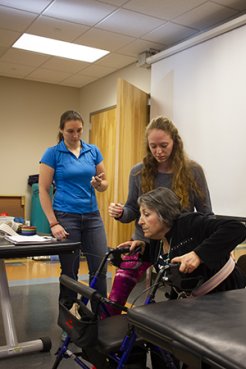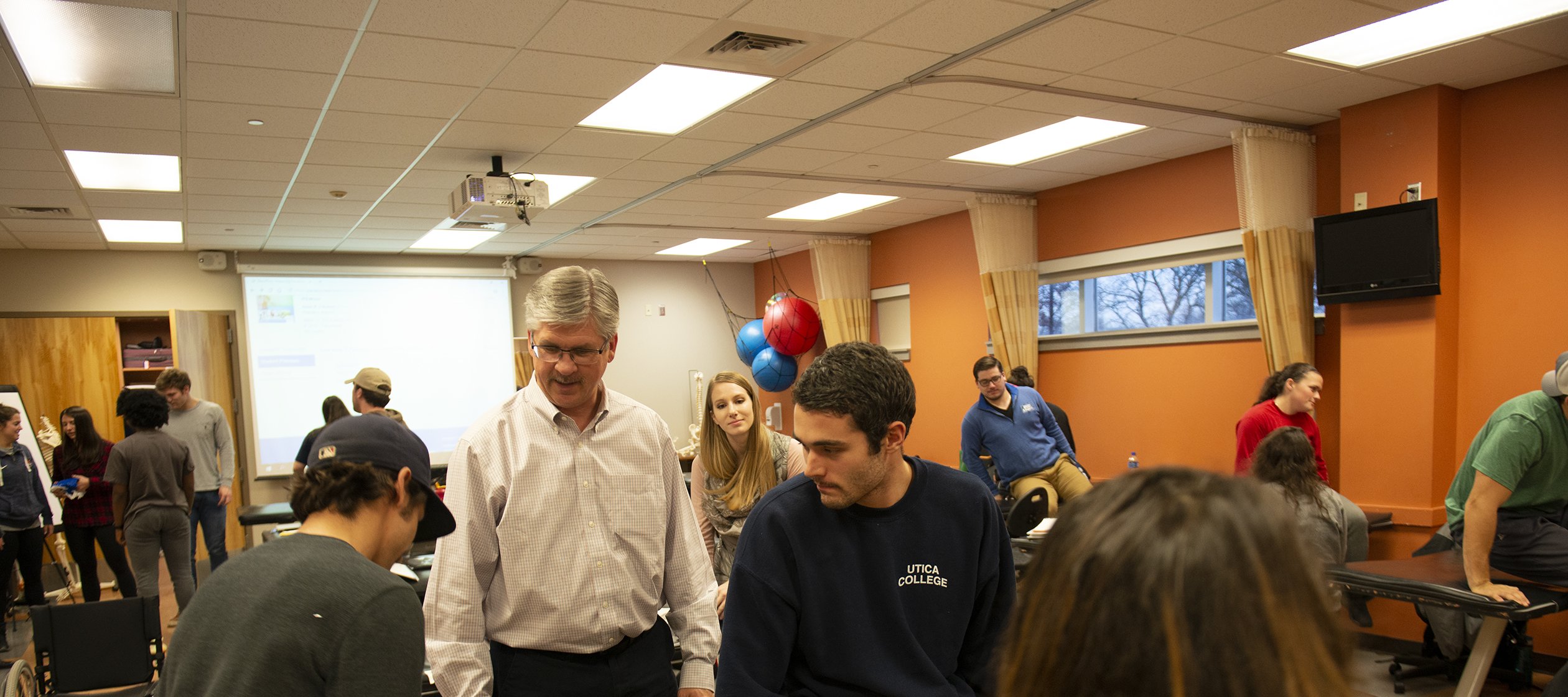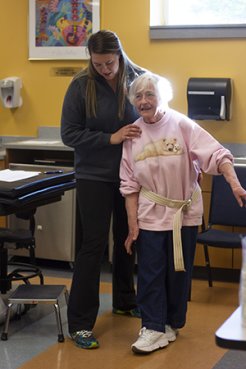

Interprofessional Education
Improving Patient Outcomes
Why you need this program

In today's complex healthcare system, care providers must work closely with diverse professionals to promote positive patient outcomes. You will learn various roles and responsibilities of health professions, explore ethical dilemmas, and practice communication and leadership skills through the Interprofessional Education (IPE) program at Utica University to effectively team up with other healthcare practitioners to improve patient and community health.
About IPE
The IPE program at Utica University:
- honors the unique approach to healthcare offered by a diversity of disciplines
- respects the unique roles, responsibilities and expertise of all health professions and the positive impact collaboration between disciplines will have on patient health outcomes
According to the World Health Organization Framework for Action on Interprofessional Education and Collaborative Practice (2010), Interprofessional education (IPE) "occurs when two or more professions (students, residents and health workers) learn with, about, and from each other to enable effective collaboration and improve health outcomes.”
Mission of IPE at Utica:
To prepare current and future health care professionals through education and practice in values and ethics, roles/responsibilities, interprofessional communication, and teams and teamwork to provide optimal person- and population- centered care.
Vision of IPE at Utica:
To advance the Utica University community towards excellence in interprofessional knowledge, skills, and attitudes needed to transform the quality of health care delivery.
Program Details
- Demonstrate knowledge and skills necessary for future practice on an interprofessional healthcare team that is patient/client-centered.
- Demonstrate mutual understanding and respect for the roles, responsibilities and scope of practice of one’s own profession and of other healthcare professions.
- Utilize communication and collaboration skills in a responsive and responsible manner that supports a team approach.
- Apply IPEC core competencies in various healthcare situations or settings.
- Develop team building and leadership behaviors that are consistent with Utica University’s Mission and Values.
- Analyze different roles and expertise within the healthcare field and recognize how individual uniqueness together with multidisciplinary approach (within the healthcare team) contributes to efficient conflict resolution, and outstanding patient care.
IPE focuses on four core competencies established by the Interprofessional Education Collaborative (IPEC®):
Competency 1 - Values/Ethics for Interprofessional Practice:
Work with individuals of other professions to maintain a climate of mutual respect and shared values.Competency 2 - Roles/Responsibilities:
Use the knowledge of one’s own role and those of other professions to appropriately assess and address the health care needs of patients and to promote and advance the health of populations.Competency 3 - Interprofessional Communication
Communicate with patients, families, communities, and professionals in health and other fields in a responsive and responsible manner that supports a team approach to the promotion and maintenance of health and the prevention and treatment of disease.Competency 4 - Teams and Teamwork
Apply relationship-building values and the principles of team dynamics to perform effectively in different team roles to plan, deliver, and evaluate patient/population centered care and population health programs and policies that are safe, timely, efficient, effective, and equitable.
IPE 102: Introduction to IPE
One credit of didactic education about core competencies of IPE and benefits of collaborative care
This introductory course is for students as they enter their health related majors and are beginning to form their identities as future health professionals. This course will explore the Interprofessional Education Collaborative (IPEC) core competencies: values and ethics, roles and responsibilities, communication, team and teamwork
IPE 504: Interprofessional Practice and Leadership
This one-credit class focuses on specific applications of IPE concepts, team building and leadership skills in a collaborative healthcare practice.
This course provides in-class practice for positive interprofessional teamwork in patient care-related fields. Emphasis is on understanding professional role identities, communication, ethical decision-making, team building, collaboration, and leadership.
IPE 505 - Interprofessional Experience
IPE 505 is a zero to one credit-bearing experience that offers the student opportunities to interact with real or simulated patients or clients in the context of an interprofessional model. This practical experience is intended to prepare students in health professions programs at Utica University for the interprofessional, collaborative practice of patient care through innovative (nationally and internationally recognized) practice experience. Students have the opportunity to interact with peers in different health professions to achieve appropriate patient/client care.

Available IPE 505 course experiences:
- Free from Falls
IPE teams of students will gain experience in applying the competencies to a population of community members with a common diagnosis (multiple sclerosis).
- Defining home
IPE teams of students work with construction management students/faculty to design a home that serves particular needs of patients/clients as a service learning IPE project
- Caring for Community
IPE teams of students participate in assessment and intervention in a local community project serving seniors.
- IPE Days
IPE Days are approximately three-hour sessions in which interprofessional student groups collaborate on a team-building activity, such as a clinical case report or a community-based project. These are pre-scheduled and generally part of a professional major-related class.
Contact Us
School of Health Professions and Education

School of Health Professions and Education
117 Hubbard Hall
(315) 792-3075
I would like to see logins and resources for:
For a general list of frequently used logins, you can also visit our logins page.
